Electric Vehicles Good for the Environment & Save You Money
April 18th, 2012 by Zachary Shahan
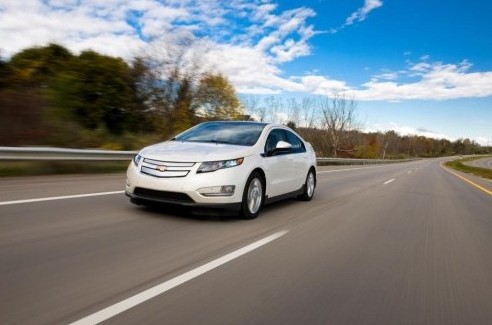
The Union of Concerned Scientists has completed what is the most comprehensive study to date on the financial and environmental costs (or, more appropriately, savings) of electric vehicles.
“No matter where one lives in the United States, electric vehicles (EVs) are a good choice for reducing global warming emissions and saving money on fueling up, according to a new analysis by the Union of Concerned Scientists (UCS),” the UCS writes.
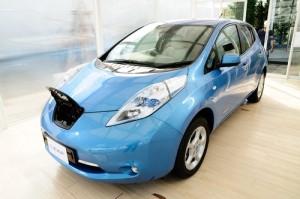 For years, EV critics have claimed that EVs don’t reduce carbon dioxide or other global warming emissions because they burn electricity from coal and natural gas power plants. While drivers in regions with a lot of fossil fuel power will not cut emissions as much as drivers in regions with a lot of clean energy power plants, no matter where someone lives in the US, driving an EV is cleaner than driving a gasoline-powered car, according to the “State of Charge: Electric Vehicles’ Global Warming Emissions and Fuel Cost Savings Across the United States.”
For years, EV critics have claimed that EVs don’t reduce carbon dioxide or other global warming emissions because they burn electricity from coal and natural gas power plants. While drivers in regions with a lot of fossil fuel power will not cut emissions as much as drivers in regions with a lot of clean energy power plants, no matter where someone lives in the US, driving an EV is cleaner than driving a gasoline-powered car, according to the “State of Charge: Electric Vehicles’ Global Warming Emissions and Fuel Cost Savings Across the United States.”
Notably, UCS also calculates how much EV drivers save in “fuel” costs — a lot.
Neither of these findings is at all a surprise to me, as one of our key EV writers has shown in the past that the cost of electric vehicles and their environmental costs are lower than conventional automobiles, but this UCS study is more comprehensive than anything we’ve seen to date.
Saving Money by Driving an EV
Everywhere in the country, an EV driver also saves money every time she or he “refuels” — compared to what they’d spend refueling a gasoline-powered vehicle.
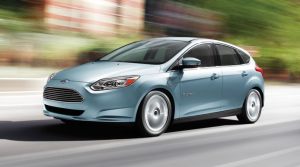 “Based on electricity rates in 50 cities across the United States, the analysis found drivers can save $750 to $1,200 dollars a year compared to operating an average new compact gasoline vehicle (27 mpg) fueled with gasoline at $3.50 per gallon. Higher gas prices would mean even greater EV fuel cost savings. For each 50 cent increase in gas prices, an EV driver can expect save an extra $200 a year.”
“Based on electricity rates in 50 cities across the United States, the analysis found drivers can save $750 to $1,200 dollars a year compared to operating an average new compact gasoline vehicle (27 mpg) fueled with gasoline at $3.50 per gallon. Higher gas prices would mean even greater EV fuel cost savings. For each 50 cent increase in gas prices, an EV driver can expect save an extra $200 a year.”
Time of Use (TOU) electricity pricing, which many regions have or are implementing, allows a driver to maximize those savings, since they cam access cheaper electricity at night when they are likely charging their vehicles.
Regional Differences for EV Emissions
More good news is that most Americans live in the ‘best’ regions for driving an EV. UCS notes: “nearly half (45 percent) of Americans live in ‘best’ regions where an EV has lower global warming emissions than a 50 mile per gallon (mpg) gasoline-powered vehicle, topping even the best gasoline hybrids on the market. In places like California and most of New York, EV’s environmental performance could be as high as an 80 mpg gasoline-powered vehicle.”
How about the worst region? Well, even in the dirtiest (when it comes to electricity) region of the US — some parts of the Rocky Mountains region — driving an EV is better than driving most other cars. “In parts of the Rocky Mountains region, driving an EV produces global warming emissions equivalent to a gasoline vehicle with a fuel economy rating of 33 mpg, similar to the best non-hybrid compact gasoline vehicles available today — all while cutting our nation’s oil consumption.”
Also, notably, clean energy is increasing while dirty energy is getting shut down, all across the US.
“The good news is that as the nation’s electric grids get cleaner, consumers who buy an EV today can expect to see their car’s emissions go down over the lifetime of the vehicle,” said Don Anair, the report’s author and senior engineer for UCS’s Clean Vehicles Program.
Bottom Line: Driving an EV is Better for the Environment than Driving a Gasoline-Powered Car
 That’s the take home message, and if you ever run into a commenter saying otherwise, be sure to direct them to this post or the report linked above.
That’s the take home message, and if you ever run into a commenter saying otherwise, be sure to direct them to this post or the report linked above.
“This report shows drivers should feel confident that owning an electric vehicle is a good choice for reducing global warming pollution, cutting fuel costs, and slashing oil consumption,” said Anair. “Those in the market for a new car may have been uncertain how the global warming emissions and fuel costs of EVs stack up to gasoline-powered vehicles. Now, drivers can for the first time see just how much driving an electric vehicle in their hometown will lower global warming emissions and save them money on fuel costs.”
EVs Getting Popular
10 new EV models are coming to market this year, and many more are on the drawing board. If you’ve been a CleanTechnica reader for a long time, you’ve probably noticed that we’ve increased our EV content a ton in the past year. I used to never write on EVs, and other writers hardly touched them, but with a few pioneering models hitting market, their clear environmental benefits, and a lot more EVs on the way, we have increased our coverage of these clean(er) vehicles considerably (and we’re now a top site for car coverage, according to Technorati).
Of course, EV’s are not as efficient or green as bicycling, walking, taking the train, or riding a motorcycle or scooter (especially an electric motorcycle or scooter) in most places, but for those who are going to stick with an automobile over one of the above options, EVs are the way to go.
Also, while EVs are greener than gasoline-power cars, we certainly need to keep maximizing their green factor by switching our grid over to a clean energy rather than primarily dirty energy grid. And for those of you interesting in doing so, there are a lot of options out there for going EV and going solar at the same time!
Source: UCS
Images: GM; Nissan Leaf courtesy of shutterstock; Ford; Wikimedia Commons; Fisker;DeLorean Motor Company;
Keep up to date with all the hottest cleantech news by subscribing to our (free) cleantech newsletter, or keep an eye on sector-specific news by getting our (also free) solar energy newsletter, electric vehicle newsletter, or wind energy newsletter.













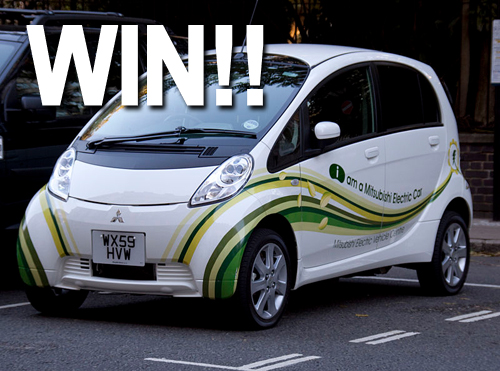




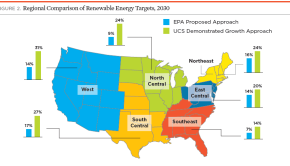









Pingback: 33 Top Electric Vehicle Stories Of 2013 (So Far) | CleanTechnica
Pingback: Top 33 Electric Vehicle Stories Of 2013 (So Far) | PlanetSave
Pingback: Car Hater To EV Lover (What Made Me Into An Electric Car Lover?) | CleanTechnica
Pingback: How Electric Cars Won Over A Car Hater | PlanetSave
Pingback: What Made This Car Hater Into An Electric Car Lover? −
Pingback: Nissan Rogue vs Nissan Leaf (Cost Comparisons) | CleanTechnica
Pingback: Nissan Juke vs Nissan Leaf (Cost Comparisons) | CleanTechnica
Pingback: California Plug-In Car Owners Driving Less & Saving Serious Money - CleanTechnica
Pingback: Ford Green Cars: Yes, You Can Go Further With Ford - The Fun Times Guide to Living Green
Pingback: Oil Prices Swings Don’t Touch EVs (Graph) - CleanTechnica
Pingback: You Can Win a $200 Whole Foods Gift Certificate & More, Courtesy Mitsubishi i | Planetsave
Pingback: Ford and SunPower Want to Make You a Deal | Planetsave
Pingback: Are Electric Cars Green?